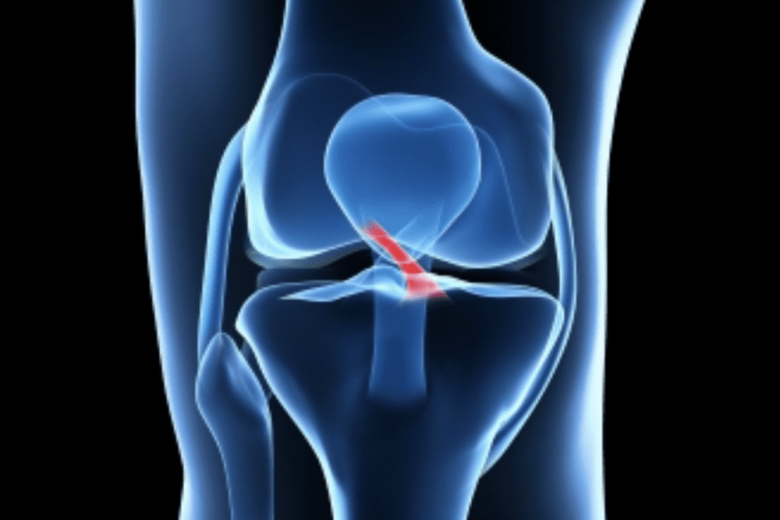
- #TORN ACL SURGERY HOW TO#
- #TORN ACL SURGERY FULL#
Patellar tendon, quadriceps tendon or some type of cadaver tissue (FigureĢb), which your surgeon will use as a tissue graft that your new ligament The reconstruction canīe performed using another tendon in the knee including from your hamstring, Or result in osteoarthritis in the injured knee. Many patients will choose to have an ACL reconstruction, because long term,Ĭontinued ACL instability from the tear may cause injury to the meniscus, Surgery is more common because the ACL will not heal completely on its Sound or a “giving way” of the knee, followed by swelling.Īfter imaging exams confirm the diagnosis, your orthopedic surgeon willĮither recommend conservative treatment or ACL reconstruction surgery. Impact sports including soccer and football, which involves a “popping” Learn More About ACL Reconstruction SurgeryĬontact the UPMC Sports Medicine ACL Program today to learn more or make an appointment.Specializing in Anterior Cruciate Ligament (ACL) Reconstruction Award-Winning Orthopedic Services in Orange County Surgery for an Anterior Cruciate Ligament (ACL) TearĪ torn Anterior cruciate ligament (ACL) is a common sports injury in high
Get back to your pre-injury sports and activities. #TORN ACL SURGERY FULL#
Give you the best chance of a full recovery.We can or will adjust it over time as you progress through the recovery period. Knowing Your Recovery and Rehab Plan Before ACL Surgeryīefore surgery, your doctor will discuss your rehab plan. Your knee surgeon will discuss the best options for you based on your: People who aren't a good fit for an autograft can have an allograft - a graft from a donor.
 The types of physical activities that you often take part in.
The types of physical activities that you often take part in.  Any underlying diseases or conditions that might prevent the use of your own tendon. The decision on where the graft will come from has many factors, including: Return to your pre-injury condition, as closely as possible.Īn autograft most often comes from either your:. Your knee surgeon chooses a graft that will give you with the strongest possible tissue, so you can: Taking the graft from one of your own tendons - an autograft. To repair a torn or ruptured ACL, your surgeon will discuss graft options with you: How We Decide the Best Type of Graft to Repair Your ACL These help promote wound healing during post-op recovery. Take certain nutritional supplements - such as multivitamins, vitamin C, and zinc - before surgery. Limit or stop using things such as caffeine, nicotine, and alcohol in the weeks leading to surgery. Nutrition and Diet Before ACL SurgeryĪt the UPMC Sports Medicine ACL Program, we counsel people who need help with their nutrition needs before having surgery. Rehab activities depend on the aspects of your ACL injury. Restore, as close as possible, the normal range of motion in the knee. Improve strength in the muscles around the knee. Physical Therapy and Rehab Before ACL Surgeryīefore surgery, doctors often prescribe physical therapy - “prehabilitation” - to help:
Any underlying diseases or conditions that might prevent the use of your own tendon. The decision on where the graft will come from has many factors, including: Return to your pre-injury condition, as closely as possible.Īn autograft most often comes from either your:. Your knee surgeon chooses a graft that will give you with the strongest possible tissue, so you can: Taking the graft from one of your own tendons - an autograft. To repair a torn or ruptured ACL, your surgeon will discuss graft options with you: How We Decide the Best Type of Graft to Repair Your ACL These help promote wound healing during post-op recovery. Take certain nutritional supplements - such as multivitamins, vitamin C, and zinc - before surgery. Limit or stop using things such as caffeine, nicotine, and alcohol in the weeks leading to surgery. Nutrition and Diet Before ACL SurgeryĪt the UPMC Sports Medicine ACL Program, we counsel people who need help with their nutrition needs before having surgery. Rehab activities depend on the aspects of your ACL injury. Restore, as close as possible, the normal range of motion in the knee. Improve strength in the muscles around the knee. Physical Therapy and Rehab Before ACL Surgeryīefore surgery, doctors often prescribe physical therapy - “prehabilitation” - to help: 
Swelling may need to go down so your doctor can get a clearer picture of the injury and nearby areas. The timing of having these tests will depend on a few factors, such as swelling in your knee. Predict the size of your native ACL before your injury and plan the size of the new replacement graft.
#TORN ACL SURGERY HOW TO#
Check the anatomy of your knee for any unique needs and decide how to operate. Learn the type and extent of the injury to your ACL and surrounding tissues. These tests may include x-rays and MRI scans to take precise measurements of the bones and structures of the knee. Testing and Assessments Before ACL Reconstruction Surgeryīefore having ACL reconstruction surgery, your doctor may order tests to help assess the level of your injury. Your surgeon will also discuss the recovery time after ACL surgery, so you fully understand your rehab plan. Before surgery to repair your injured ACL, your UPMC Sports Medicine knee surgeon will design a complete plan based on:







 0 kommentar(er)
0 kommentar(er)
